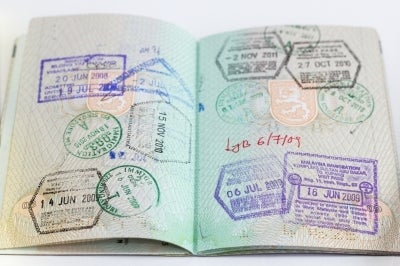In recent years, a new federal tax and changing global economy have forced medical device manufacturers to broaden their markets and seek savings through automation to continue to grow.
A 2011 study presented at the Massachusetts Device Industry Council’s (MassMEDIC) annual meeting painted a pretty picture for the industry in the Bay State, with Massachusetts-based firms accounting for 13 percent of all state exports and 10 percent of all U.S. medical device exports in 2010. It was a boom time for the industry, MassMEDIC President Thomas Sommer said.
Since that time, “everything has been impacted,” he said, explaining that “anecdotally, it has been somewhat of a sluggish time for medical device companies.”
The global market is forecast to grow only 3 to 4 percent over the next five years, according to Kalorama Information’s report, “The Global Market for Medical Devices,” which was released in August.
Sommer points to the federal medical device tax as one cause for this restrained growth. The 2.3-percent levy on the sale price of all taxable medical devices that manufacturers produce was introduced in 2013 as part of the Affordable Care Act. The companies are taxed even if the products aren’t sold, Sommer said.
“The medical device tax has put the industry in a very difficult position, especially for the small and midsize companies that are more innovative than the larger (medical technology) firms,” Sommer said.
Injectronics, which has manufacturing facilities in Clinton and Westborough, produces medical devices through contracts from larger device manufacturers. While the company itself has not been impacted by the tax, it has felt it through a reduction in business from customers affected by the medical device tax.
“Our customers are pushing to get cost savings,” said Michael Simmons, Injectronics’ COO. “We have to figure out how to do more with less. That is a challenge every year.”
Injectronics has continued to grow by diversifying its customer base and reinvesting in automation, he said.
Meanwhile, Nypro, a contract manufacturer for the health care industry that makes such products as inhalers and infusion pumps, has felt the growing concern over cost, according to Al Cotton, a spokesman for the Clinton-based company. But the company has always focused on efficiency through automation and robotics, Cotton said.
“Being as cutting edge as you can be with your technology, that gives you manufacturing advantages,” Cotton said. “We are efficient and we have always tried to be on the leading edge of technology (while) keeping cost down. That helps us with the bigger customers.”
Steve Sawin, CEO of Operon Resource Management in Lowell, provided 1,200 temporary workers to medical device manufacturing companies across the United States last year. He has also seen his customers cutting their workforces as they try to curb costs. That has forced his company to seek more clients.
“It’s not so much that the expansion has decreased. The expansion continues, but it may not be in Massachusetts and it may not even be in this country,” Sawin said.
Looking to Asia
Asia recently passed Europe as the medical-device industry’s top export destination, with $9.7 billion of products, or 36 percent of the state’s merchandise exports, having been shipped there in 2013, according to a recent report from the Boston Globe, citing information from WiserTrade.com.
“There’s no question that while the U.S. market is the largest for the medical device industry, the fastest growing is in Asia,” Sommer said.
Nypro has been in Asian markets for 15 years, but within the last year has seen more activity in China.
“The growth around the world in health care is largely due to the … growth in many of the developing areas of a growing middle class that can support a healthcare market,” said Cotton, who also cited growth in Ireland and Mexico. “The middle class began expecting good things such as health, and that in turn develops the market.”
Continued opportunity in Central Mass.
Massachusetts is second only to California in the number of people employed in medical device manufacturing, Sommer said. Both Cotton and Simmons, of Injectronics, agree that Central Massachusetts continues to be an excellent place to operate a medical device company, combining an educated workforce with a long history of plastics manufacturing that provides the infrastructure the plastics-heavy industry relies on, they said.
“Plastics has been around for 100 years in Central Massachusetts,” Cotton said. “There are people who understand what it takes to maintain the industry.”
This month, Nypro is adding to the company’s 800,000 square feet of existing manufacturing space in Clinton with a new 200,000-square-foot manufacturing facility in Devens. This is a commitment to medical device manufacturing that Cotton says speaks to the industry’s continued potential in the state.
“We are about to have a million square feet in Central Massachusetts devoted to manufacturing for healthcare so that is a pretty serious commitment,” he said.

